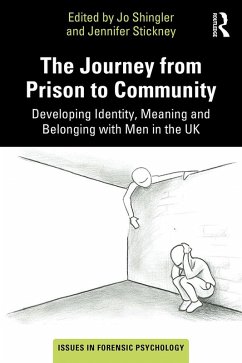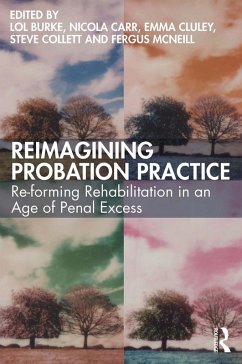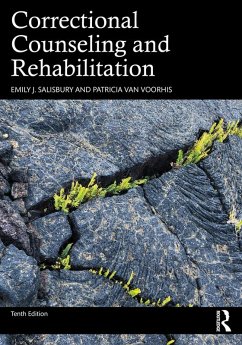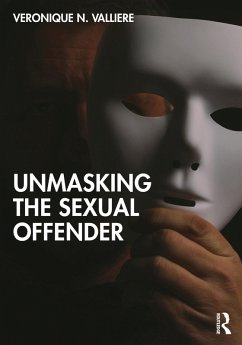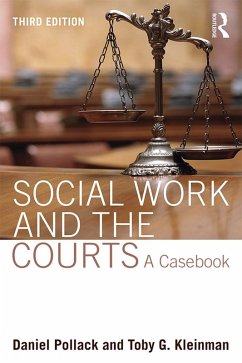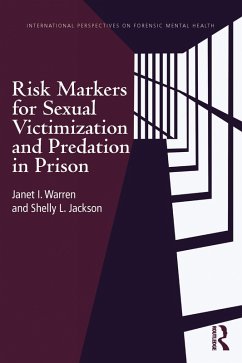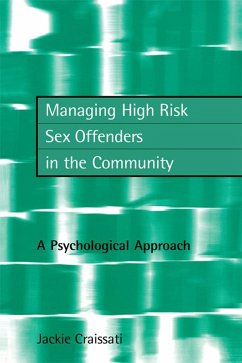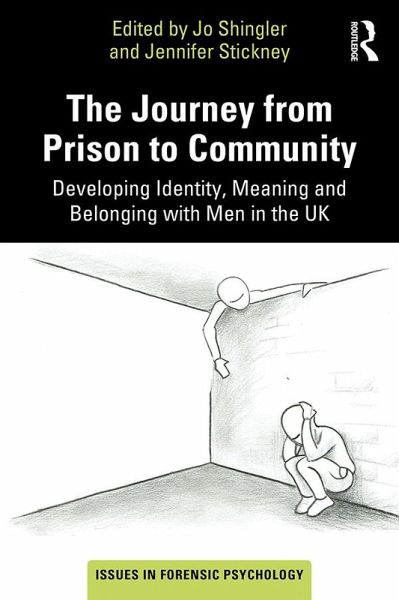
The Journey from Prison to Community (eBook, PDF)
Developing Identity, Meaning and Belonging with Men in the UK
Redaktion: Shingler, Jo; Stickney, Jennifer
Versandkostenfrei!
Sofort per Download lieferbar
33,95 €
inkl. MwSt.
Weitere Ausgaben:

PAYBACK Punkte
17 °P sammeln!
The Journey from Prison to Community: Developing Identity, Meaning and Belonging with Men in the UK provides a practical guide for practitioners working with men to successfully make the transition between prison and the community.This transition presents significant challenges, especially for those who have served many years in prison; for those who have experienced multiple cycles of release/recall; for those whose personality traits make it harder for them to build relationships and cope with strong emotions; and for those whose lives have been characterised by trauma, chaos, crime and inst...
The Journey from Prison to Community: Developing Identity, Meaning and Belonging with Men in the UK provides a practical guide for practitioners working with men to successfully make the transition between prison and the community.
This transition presents significant challenges, especially for those who have served many years in prison; for those who have experienced multiple cycles of release/recall; for those whose personality traits make it harder for them to build relationships and cope with strong emotions; and for those whose lives have been characterised by trauma, chaos, crime and institutionalisation. Drawing on the authors' clinical expertise and the lived experiences of real service-users, alongside the latest research in the field, the book identifies key issues in transition and explores the impact of these issues. Crucially, it provides guidance, tools and support to professionals working with men in the UK to build a crime-free, socially integrated and meaningful life after incarceration, featuring real-life stories of those who have made the transition.
This is an essential read for professionals working in a range of settings across prison and community environments, while the wide variety of professional experience represented in the book broadens its appeal to forensic and clinical psychologists, occupational therapists, probation officers, prison staff and those working in the third sector. It is also valuable resource for qualified professionals, those in training, support roles, and managers involved in planning strategy and service delivery.
This transition presents significant challenges, especially for those who have served many years in prison; for those who have experienced multiple cycles of release/recall; for those whose personality traits make it harder for them to build relationships and cope with strong emotions; and for those whose lives have been characterised by trauma, chaos, crime and institutionalisation. Drawing on the authors' clinical expertise and the lived experiences of real service-users, alongside the latest research in the field, the book identifies key issues in transition and explores the impact of these issues. Crucially, it provides guidance, tools and support to professionals working with men in the UK to build a crime-free, socially integrated and meaningful life after incarceration, featuring real-life stories of those who have made the transition.
This is an essential read for professionals working in a range of settings across prison and community environments, while the wide variety of professional experience represented in the book broadens its appeal to forensic and clinical psychologists, occupational therapists, probation officers, prison staff and those working in the third sector. It is also valuable resource for qualified professionals, those in training, support roles, and managers involved in planning strategy and service delivery.
Dieser Download kann aus rechtlichen Gründen nur mit Rechnungsadresse in A, B, BG, CY, CZ, D, DK, EW, E, FIN, F, GR, HR, H, IRL, I, LT, L, LR, M, NL, PL, P, R, S, SLO, SK ausgeliefert werden.




